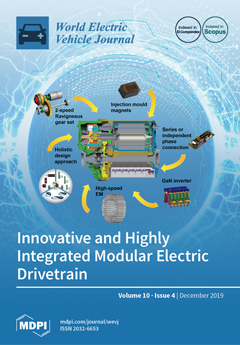Knowledge Hub
The Government of India has been taking various steps to drive the adoption of electric vehicles (EVs) in India for the past few years. However, the sales of electric cars in the country continue to be very low—only around 3,500 a year—as compared to those of conventional internal combustion engine (ICE) cars.
Building a Shared, Clean and Citizen-Centric Mobility System in Bangalore
2020
Author(s): Patil M, Abramczyk M
Bangalore, like many cities across India, is witnessing significant growth in mobility demand driven by rapid urbanization and growing incomes. This growth is straining an already burdened transportation system, resulting in many economic and environmental issues. Bangalore will need to develop and deploy shared, clean, and citizen-centric mobility solutions to ensure this demand is met in a sustainable manner that provides safe, accessible, and reliable transportation for citizens.
A Blue-Sky Vision: Clean Energy and Mobility in India’s Recovery
2020
Author(s): Ningthoujam J, Laemel R
The Rocky Mountain Institute (RMI) has been working in India for the past five years, supporting government and business leaders with the country’s energy transition. Over the past year, RMI has witnessed the challenging problems of Delhi’s infamous congestion and toxic air pollution—the latter of which has led to 4 in 10 of the city’s children suffering from air pollution-related respiratory ailments.
In one of the most progressive measures to address severe air pollution in Delhi NCR region, the government has approved the long-awaited Delhi Electric Vehicle (EV) Policy recently. The first draft of the policy was released in November 2018 and was welcomed by industry, intelligentsia and academicians.
Electric Vehicles: A Sustainable Solution to Air Pollution in Delhi
2015
Author(s): Pillai RK, Ahuja A
The objective of this paper is to highlight the relevance of electric vehicles (EVs) in reducing air pollution in cities and their significant environmental benefits. The paper recommends phased approach for rollout of EVs in Delhi on fast track.
The transport sector now accounts for about 23% (7.3 Gt) of annual global energy-related CO2 emissions (32 Gt). This is a significant rise over the last few decades, and to achieve a two-degree scenario CO2 emissions from transport would need to decline to 5.7 Gt annually.

Estimating Vehicular Emissions From Auto Rickshaws Plying in Bengaluru
2018
Author(s): Thakur P, Pal S
The objective of this research paper is to estimate the vehicular emissions in form of carbon dioxide (CO2), particulate matter 10 (PM10) and nitrogen oxide (NOX) emitted by the auto rickshaws plying in Bengaluru city and recommend policy based solution based upon the estimated alternative scenarios.
Profitability of Frequency Regulation by Electric Vehicles in Denmark and Japan Considering Battery Degradation Costs
2020
Author(s): Calearo L, Marinelli M
Primary frequency regulation (FR) service has been demonstrated to be technically feasible and economically profitable in different studies worldwide. This paper determines the profitability of the primary frequency regulation service considering the wear of the electric vehicle (EV) battery as a cost.

Electric Mobility and Smart Mobility: Concepts - Restrained Uptake in German Cities
2019
Author(s): Johnsen D, Vorholt F, Gieschen J-H, Müller B, Randhahn A
This article evaluates the Green City Plans (GCP) of German municipalities. It also explains the activities on the local level in Germany to mitigate climate change and to affect a mobility turnaround. In the scope of this study, 55 publicly available GCPs were evaluated in order to assess their potential for traffic turnaround at a municipal level.
Results Framework on Sustainable Transport
2015
Author(s): Sayeg P, Starkey P, Huizenga C, Deutsche Gesellschaft für Internationale Zusammenarbeit (GIZ) GmbH, UN-Habitat
The Results Framework on Sustainable Transport describes the potential contribution of sustainable land-based transport to the realisation of the post‐2015 Development Agenda and associated Sustainable Development Goals (SDGs).



